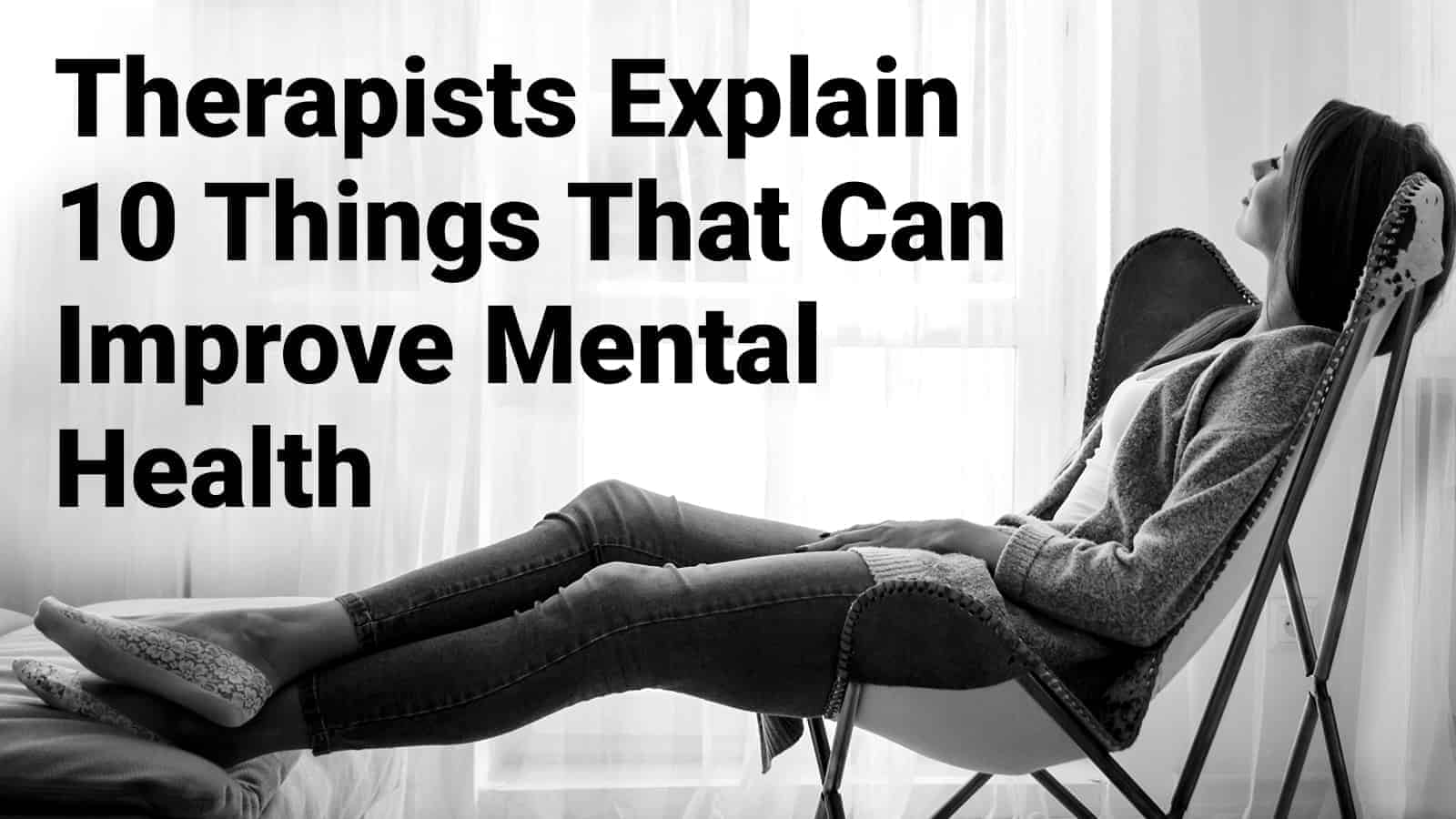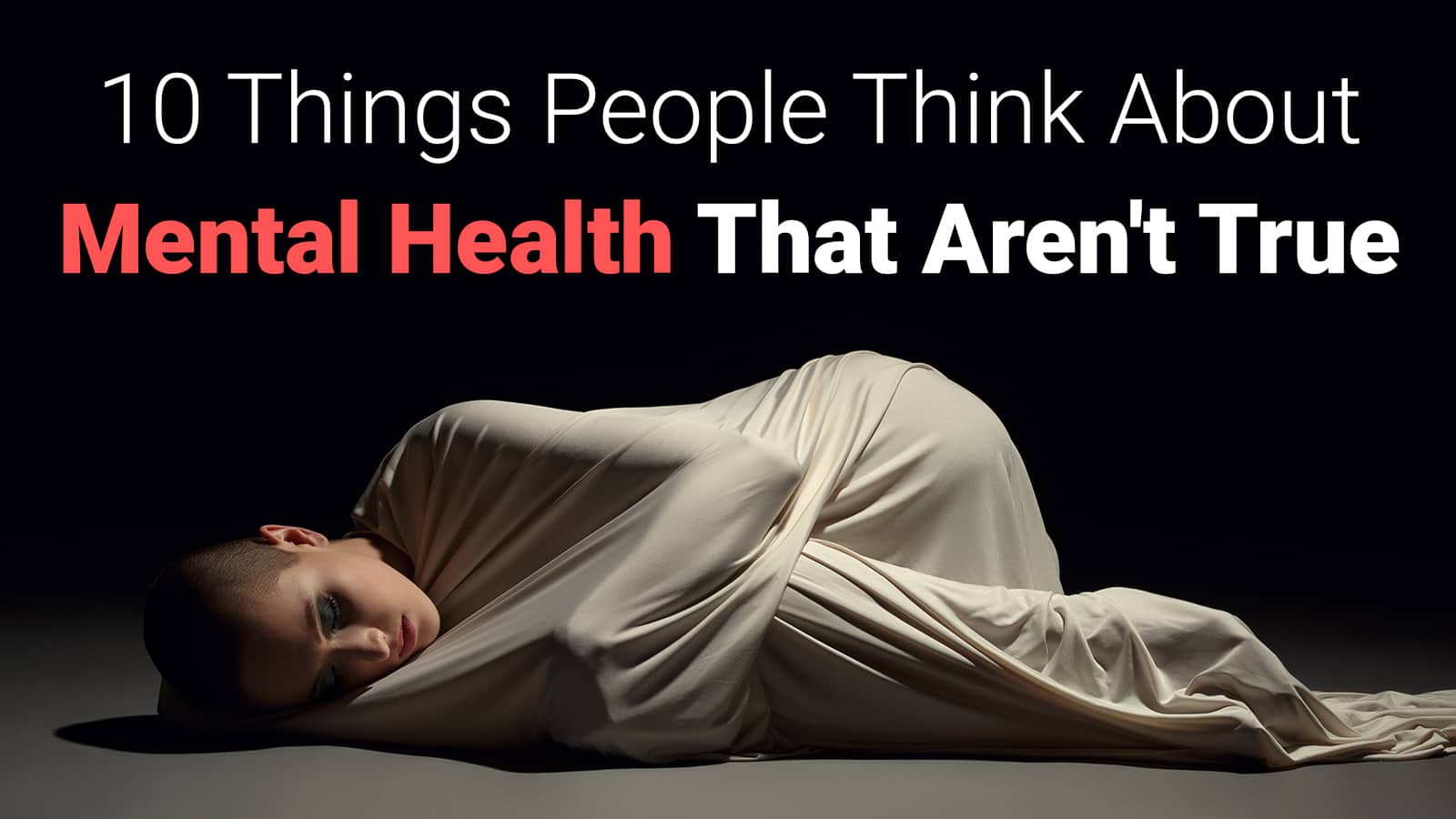Taking care of your mental health is just as important as looking after your physical health. If you’re emotionally and mentally well, you’ll be able to deal with stress and better manage whatever life throws at you. Therapists are often very helpful in helping people sort out their issues. It stands to reason that they might have some pretty good advice about mental health. So we wanted to get the opinions of the experts regarding what you must do to improve your mental health.
Here Are 10 Things That Can Improve Mental Health, According To Therapists
“It’s up to you today to start making healthy choices. Not choices that are just healthy for your body, but healthy for your mind.” – Jasmine Warga
1. Write your thoughts and feelings in a journal.
Writing a journal is a great exercise for mental health. Expert Jason Moser of the Michigan State University shared in a study that writing down your thoughts takes the edge off the stress and confusion in your mind. When you write down what’s really bothering you, you release those heavy and disruptive feelings that prevent you from becoming productive and feeling positive.
You don’t have to write seriously long journal entries. You may spend just five to ten minutes on this activity. When you’re journaling, you can also monitor the changes in your thought process or mindset and you can discuss or probe these thoughts further with your therapist later.
2. Trust in the power of positive thinking.
People with a positive attitude can generally handle life’s problems and stressors better as they don’t give up on finding solutions. Because they focus their perspective on positive thoughts, they can reframe the way they view life. Thus, based on this mindset, they tend to make good choices in life.
Life coach and licensed clinical social worker Diann Wingert suggests creating an inner dialogue filled with affirmations in order to train your brain to think positively. Research shows that the power of positive thinking opens your mind and brings ideas that add value to your life.
3. Go on daily walks to calm your nerves.
When you’re mad or frustrated, don’t you feel better after stepping outside for a short walk? Going out and getting some air can actually take a load off those heavy feelings. In fact, some therapists have incorporated walks with their patients during their therapy sessions, especially if the weather is nice for a stroll.
Walking releases endorphins, the feel-good hormones, that can improve your mental health if you’re feeling sad or depressed. And getting outside lets you experience the sun or the breeze, which enhances mindfulness.
4. Focus on self-care activities.
Self-care activities are things you do to help yourself de-stress. There’s no right or wrong way to go about these activites. It also doesn’t matter if you do them every day or every week. The most important thing with self-care is that you focus on stuff that gives you happiness and pleasure, whether you’re alone or with someone whose company you enjoy.
5. Don’t forget to say, “Thank you.”
According to Dr. Alexandra Kelly of the Psychological Health Center of Excellence, expressing your gratitude every day has been proven to improve sleep, control chronic pain, reduce stress and symptoms of depression, and impact your overall wellbeing. When you’re always thankful for something, you acknowledge the good things that happen in your life. For this exercise, create a simple gratitude list to reflect on every day. It might help to write this in your journal, too.
6. Count on “your people.”
You’re not going to carry on with life well if you don’t have a support system. This group of people might be your immediate family, or it may consist of a group of close and trusted friends with whom you feel comfortable sharing your feelings.
Social connection is vital to mental health. No man is an island, after all. Therapist Ryan Adams of the Cincinnati Children’s Hospital Medical Centre did a study on the impact of best friends on stress and the results were not surprising. It revealed that having a best friend present during a challenging experience reduces feelings of negativity and improves feelings of self-worth. If you have people you can count on, they can definitely make bad experiences a lot more bearable.
7. Tune into sad music.
It might seem counterproductive to listen to sad music if you’re trying to be positive. However, a study from behavioral psychologists in Berlin showed that sad music can trigger peaceful feelings that can transform into positive emotions for the listener. A sad song also heightens your ability to empathize. When you connect and relate to the song’s message, you’re more attuned to your feelings and understand yourself and other people’s struggles better.
8. Get more sleep.
You instantly feel the physical effects of a lack of sleep. Well, if you’re not sleeping well or if you’re not sleeping enough, it can also seriously wreck your mental state. Sleep regulates your emotions and concentration. If you continue with poor sleeping habits, you may become vulnerable to depression and other mental disorders. So, if you’re cranky because you only got two hours of dream-time, you might want to skip work and catch up on your sleep.
9. Unplug and do a digital detoxification.
Social media can provide you with a wonderful support system. However, if you’re on this platform too much, you could end up feeling worse and worse, especially if it might seem that your friends have better lives than yours. Once a while, go on a digital detoxification. Unplug those devices and focus on other activities away from the online world. It will be good for your sanity.
10. Educate yourself about mental health.
They say that knowledge is power. If you diligently read up on mental health conditions and disorders, you will be better equipped to handle it if you or your loved ones experience problematic symptoms. You’ll also be more willing and empowered to seek help or talk about what you’re going through with other people. The more we learn about mental health, the less of a negative stigma we will have regarding these conditions, and the more positive and healthy our approach will be.
Final thoughts
Make your mental well-being a priority. Don’t wait until you’re going through a crisis. Consider going to a therapist if you need guidance, and not just because you’re facing a serious problem.
https://www.youtube.com/watch?v=CU2LlJxEdJ4














 Community
Community

